Mostly people ask us “what is the difference between ghee and cultured ghee“?
The answer is actually very simple. Ghee is made from milk, and cultured ghee is made from yogurt or curd. Cultured Ghee is known as Desi Cow Ghee in India, where the word desi means prepared with indigenous method.
We make pure desi ghee for people that are extremely dairy sensitive, and our Desi Ghee is prepared by Vedic process. If you are not extremely sensitive to dairy, there is essentially no difference between other ghee and cultured ghee. But if you are allergic to dairy, then pure desi ghee makes a world of difference. Now the question is – Where can I buy Desi Cow Ghee? Buy ghee online at our online store. Visit our website https://sureshdesighee.com/ to know more.
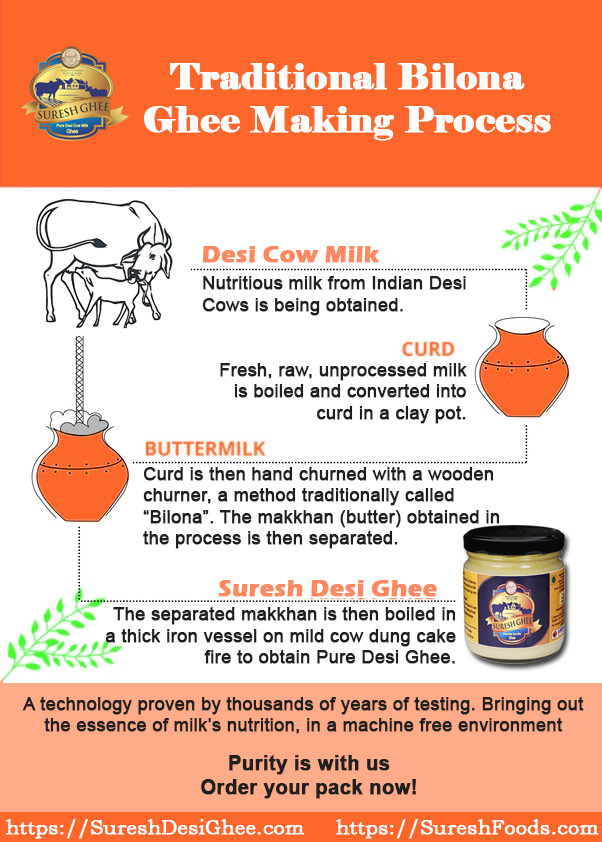
So what does making ghee from yogurt do? How does that help people with dairy allergies? And if it’s made from yogurt or curd, does that mean it’s fermented?
Well, yes and no. Yes, it’s fermented. But No, it’s not a source of live and active cultures. It’s kind of like a sourdough bread, where the kneaded dough is fermented and then baked into bread. Even though a sourdough bread is not a source of live bacteria or probiotic, the fermentation process makes the bread easier to digest.

Read our blog – Why The Pure Desi Cow Milk Ghee Is Costlier Than Normal Ghee?
The Fermentation Process
Milk contains lactose, natural sugar which gives it a delicate sweet taste. In order for the body to breakdown lactose into its basic components of simple sugars called galactose and glucose, an enzyme called lactase must be present.
Many people lack this valuable enzyme in their digestive system, resulting in a common digestive problem is known as lactose intolerance. In order to metabolize lactose, lactase should always be present.
During the fermentation process of milk or cream, lactose is converted into lactic acid. This makes for a much more digestible product for people.
In the normal process of making normal ghee, the lactose is removed when the milk solids are separated from the fat. This means that normal ghee does not usually cause a problem with lactose intolerance. However, Desi ghee is even better than other ghee for those with lactose issues, as lactose is converted into lactic acid during fermentation process.
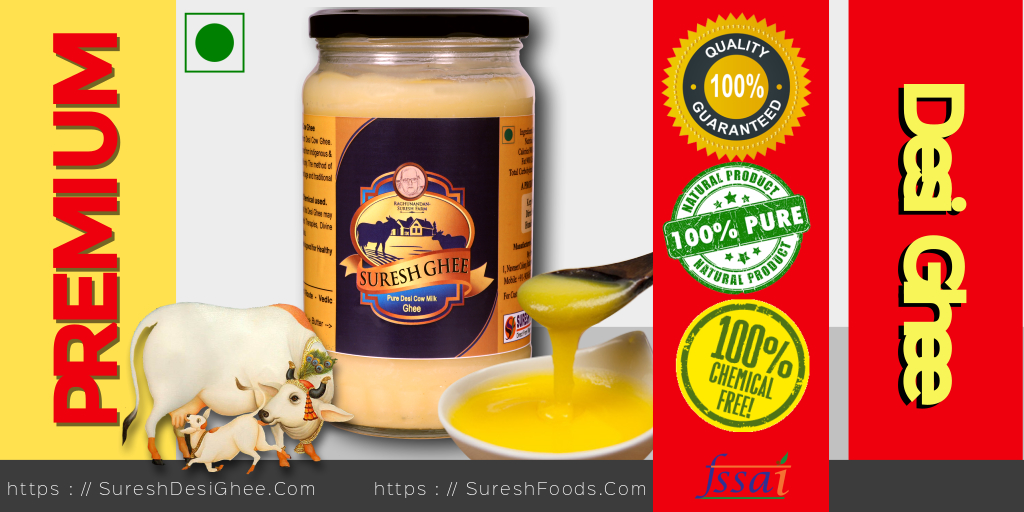

Why Cultured Ghee (Desi Ghee)?
- Desi Ghee has a more buttery taste as a result of fermentation of the cream. Many people prefer the taste and fragrance of cultured foods.
- Batch-tested for traces of “dairy” (no more than 0.25% lactose and no more than 2.5 ppm casein/whey). This testing has not been done for non-cultured Ghee.
- Our traditional Ghee recipe has been used for thousands of years. The ancient tradition of Ayurveda considers Desi Ghee important for strengthening Agni, our powerful digestive fire.

Qualities of cultured ghee according to Ayurveda
- Rasayana: This means nourishing all the tissues in the body. In Ayurveda after remove toxic substances from the body with Panchakarma, Rasayana formulations are given to nourish all the tissues and cells in the body.
- Madhur: Ghee is sweet in taste. There are six types of taste in the body and sweet or madhur is the first of these.
- Dipana: Cultured ghee is one of the best appetite stimulants and natural digestives. The concept of Agni is very important in Ayurveda as this science believes that a weak Agni is the cause of many diseases. Cultured ghee strengthens the Agni, improves digestion and appetite and therefore helps nutrients to reach the tissues.
- Chakshushya: Cultured ghee is beneficial to the eyes. It strengthens the eyes and eyesight. It is used to treat various eye problems.
- Reduce Vata and Pitta: Of the three Doshas or elements in the body i.e. fire, wind and water, cultured ghee helps control and decrease the former two. So those who suffer from excess body heat should always use cultured ghee in their diet.
- Beneficial to the complexion/enhances beauty: Consuming desi ghee regularly leads to a healthy glowing complexion.
- Ojaskara: Oja is a substance found in very small amounts in the body. It contains the best qualities of all the seven tissues of the body. Depletion of Oja leads to several mental and physical illness and is difficult to treat. Cultured ghee directly nourishes Oja and so should be a part of daily diet.
- Benefits the voice/speech: Cultured ghee helps build a strong and clear voice. Ayurveda uses ghee to treat many speech disorders.
- Smritikar/Medhya: Improving memory/increasing intelligence. Ghee is a very good natural brain tonic. It should be eaten regularly by children, and old people.
- Aayushyakara: Ghee actually increases the lifespan. Many studies have clearly shown that consumption of healthy fats like pure desi ghee increase the life span, promote longevity.
- Strengthening: Helps in generalized weakness and general debility post disease.
- Vrushya: Improving fertility and libido. Desi ghee is said to be similar in consistency to Shukra or semen. So all Ayurvedic treatments of male infertility, and such problems will include desi ghee. Desi cow ghee also helps women conceive and have a healthy pregnancy and smooth delivery.
Medicated ghees are used to treat a vast number of diseases in Ayurveda but as one can see even simple, plain cow’s ghee is useful in innumerable number of ways.
Desi Ghee should be a part of everyday meals as it has always been in our homes, else we will be forced to take it as a supplement. Yes ghee is so healing & nourishing it helps prevent many diseases if we take it everyday.
Thankfully desi ghee suits everyone including the lactose intolerant if clarified well. Make some ghee yourself using either cultured heavy cream or homemade cultured butter.
What makes cultured ghee unique ?
The cultured ghee is produced from cultured butter. A dairy butter is utilized as an ingredient in regular ghee, but manufacturers rather choose to use cultured butter in the cultured ghee creating process.
The consistency of cultured ghee contains lactic acid rather than lactose in milk. Lactic acid is the main attribute of this ghee-clarified butter that plays a major difference for the consumers of cultured ghee.
The presence of the lactic acid in cultured ghee is a blessing for those who are dairy-sensitive consumers. Lactic acid helps in combating food sensitivity, majorly caused by lactose in this diary staple.
One of the properties of the Cultured ghee is that it is a rich source of butyrate, providing one of the best therapeutic advantages for people who go through constipation or irregular bowel movement. However, there is no live presence of culture in the dairy, it affects as healthy as a probiotic.
What is the difference in the benefits of Desi Ghee or Cultured Ghee ?
While considering cultured ghee vs. Desi ghee, both products show up as ghee-clarified butter but there is a fine line of difference among these two milk-made products. However, the raw materials differ in both as the clarified butter is created from dairy butter, but cultured ghee is created from cultured butter.
Among the cultured ghee vs. Desi ghee, one that is normal or non-cultured ghee tends to have a high/mild aroma, but on the other hand cultured ghee is mostly a high-aroma product because of the effects of fermentation. Apart from the aroma, both the varieties differ in flavor as well.
A non-cultured ghee mostly has no taste resulting in working as a first-class taste enhancer. Whereas, a cultured ghee provides an intense buttery flavor because of the fermentation process involved in its manufacturing.
However, both non-cultured and cultured ghee tends to have a long shelf life. But a cultured ghee has a comparatively longer shelf life. One can choose to store cultured ghee in the kitchen without even refrigeration support.
Comparing cultured ghee vs. Desi ghee, the main difference boils down to the ingredients. Also, cultured ghee proves to be a zero-lactose product, as it consists of lactic acid only. Hence, consumption of a cultured ghee is a rather beneficial and safer alternative if you are immensely lactose intolerant and go through food sensitivity. The presence of the lactic acid of cultured ghee is a beneficial savior for the food sensitivity issues.
Pure Desi Ghee Price Online: 1 kg Ghee Price is Rs 2400/-Health Benefits Of Drinking Milk With Ghee At Night
Benefits Of Applying Desi Ghee For Face Overnight
Desi Cow Ghee Benefits
Best Ghee For Babies, Infants Skin And Ghee Massage For Babies
Ghee For Mental Health
Desi Cow Ghee For Hair Growth, Hair Fall Treatment & Regrowth Benefits
Desi Cow Ghee vs Buffalo Ghee vs Jersey Cow Ghee

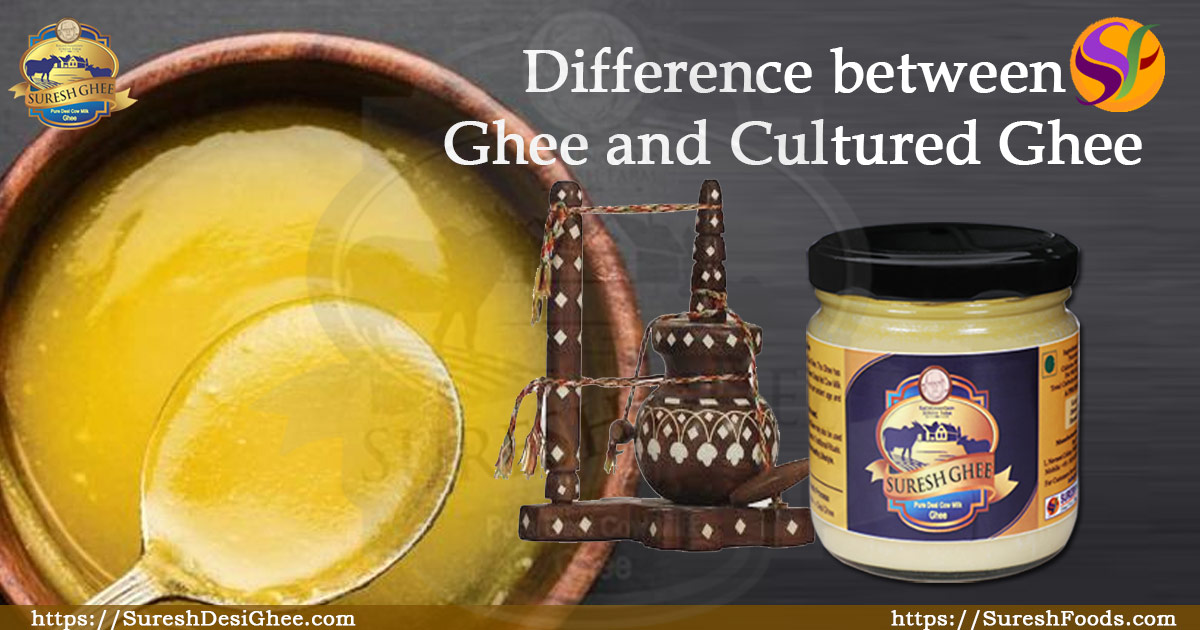
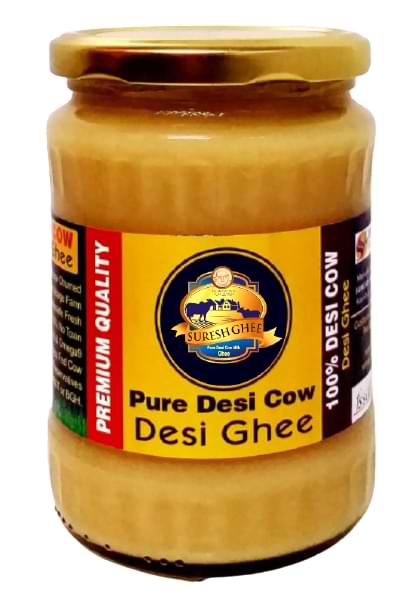
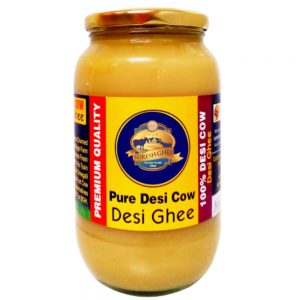
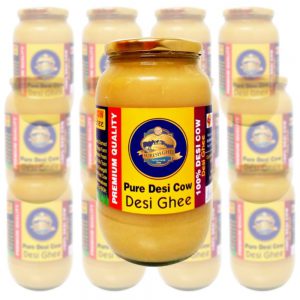
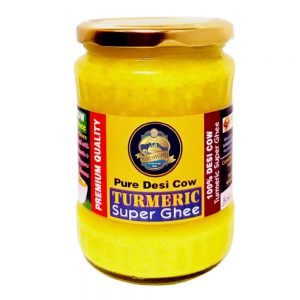
 WhatsApp us
WhatsApp us 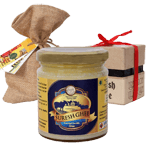
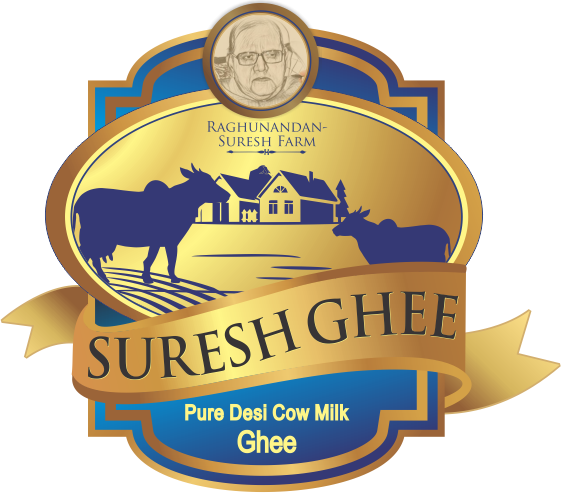
Naveen m...